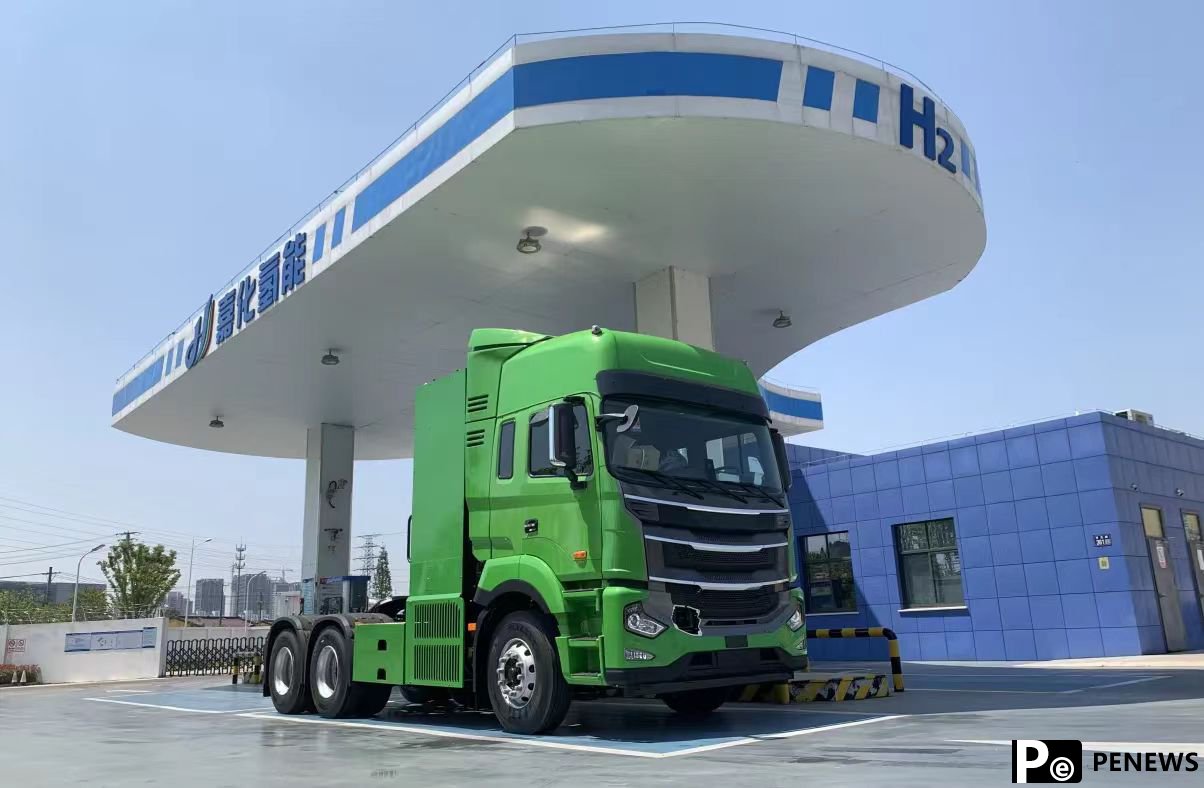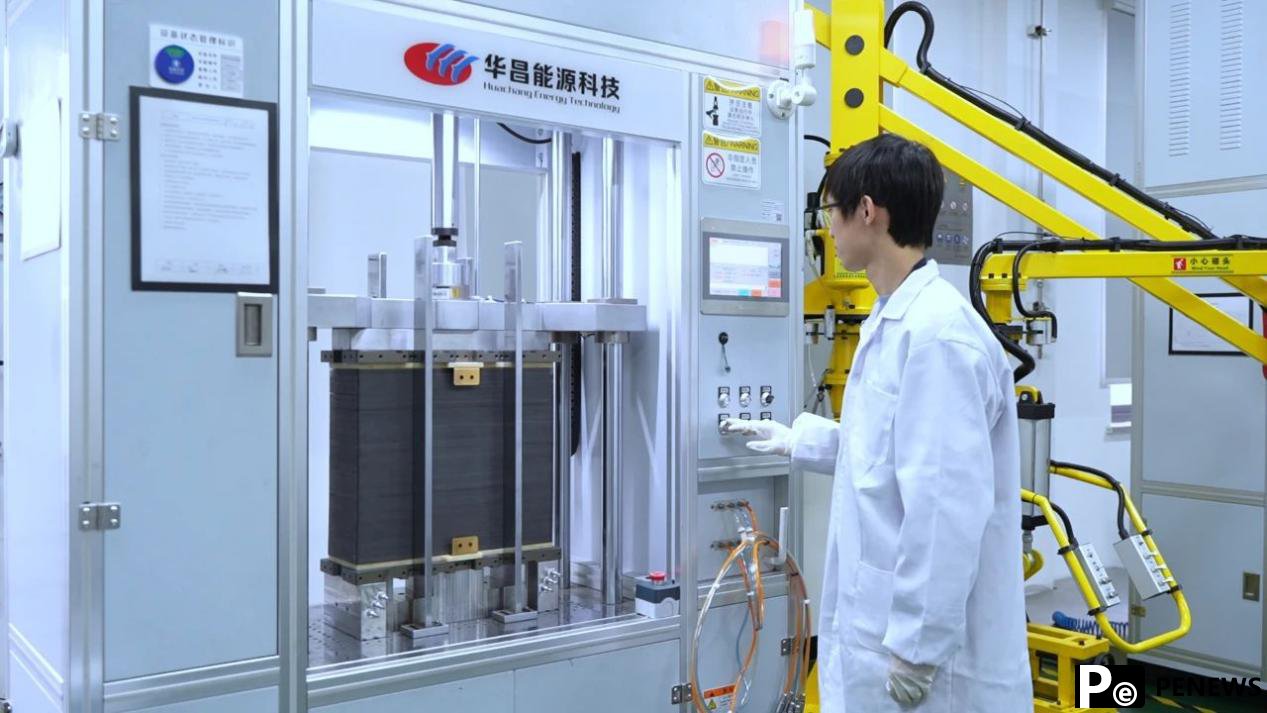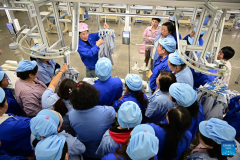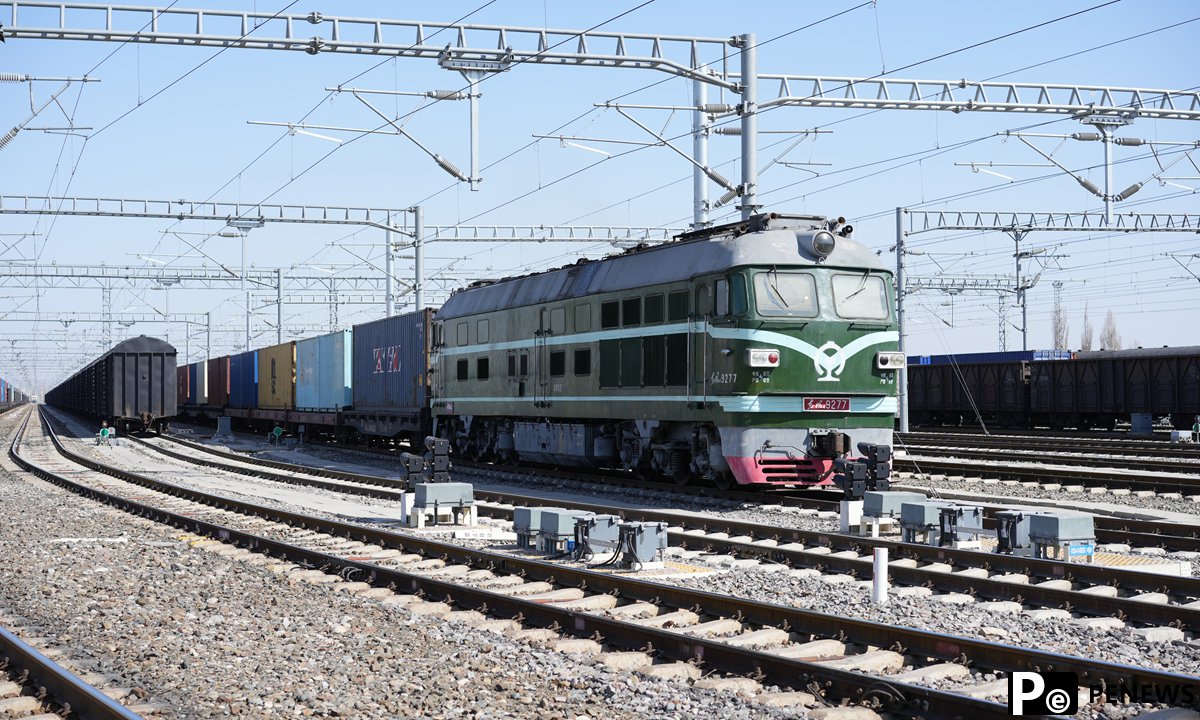Home>>
Hydrogen energy industry thrives in Zhangjiagang in E China(People's Daily) 13:32, March 28, 2025

Photo shows a hydrogen refueling station in Zhangjiagang, east China's Jiangsu province. (Photo provided by an interviewee)
In Zhangjiagang city, Jiangsu province, a region with a robust manufacturing foundation in eastern China, a comprehensive hydrogen industry ecosystem encompassing production, storage, transportation, and application is rapidly emerging and expanding.
The city routinely deploys hydrogen-powered tractors in port operations and hydrogen-fueled buses across urban road networks. Meanwhile, integrated hydrogen-solar smart microgrids have evolved into innovative "power bank" systems that deliver renewable energy solutions.
As a clean energy carrier, hydrogen demonstrates versatile applications in transportation and chemical industries, effectively reducing reliance on fossil fuels like gasoline, diesel and coal. When employed for large-scale, long-duration and seasonal energy storage, it further serves as a critical stabilizer for balancing power grid supply-demand dynamics.
In February, China's Ministry of Industry and Information Technology, along with seven other government bodies, jointly issued an action plan to promote high-quality development of the new energy storage sector, explicitly advocating accelerated research into ultra-long-duration hydrogen storage technologies.

Photo shows a hydrogen fuel cell workshop of an energy technology company in Zhangjiagang, east China's Jiangsu province. (Photo from the official account of Zhangjiagang's publicity department on WeChat)
Among hydrogen energy's most recognizable civilian applications is transportation. Capitalizing on its superior energy density, hydrogen proves particularly suitable for long-range mobility applications, with ongoing deployments spanning public transit systems, urban delivery networks, cold chain logistics, and heavy-duty freight transportation.
At the Jiahua hydrogen refueling station in Zhangjiagang Economic and Technological Development Zone, up to 1,000 kilograms of hydrogen are dispensed daily.
"The bus is equipped with eight hydrogen tanks totaling 26 kilograms of capacity. Refueling takes just 20 minutes," explained Chen Zhouhua, a bus driver refueling his King Long hydrogen-powered vehicle, produced by the prominent Chinese new energy automaker. After a full refuel, the bus can travel 400 kilometers, requiring Chen to replenish its hydrogen supply every one to two days.
Zhang Chengjian, general manager of a local public transport company, emphasized the environmental advantages: A single hydrogen-powered bus reduces annual carbon dioxide emissions by approximately 55 tons compared to a conventional diesel counterpart.
He noted that over the past six years, Zhangjiagang's hydrogen bus fleet has expanded to 73 vehicles. By the end of 2024, these buses had collectively logged 14.29 million kilometers, slashing carbon emissions by over 10,300 tons.
Beyond public transit, the city has integrated hydrogen technology across multiple sectors, deploying five hydrogen-powered port tractors, 65 hydrogen-fueled heavy-duty trucks, and more than 500 hydrogen-assisted bicycles. These innovations now operate seamlessly within port facilities, urban thoroughfares, and residential neighborhoods.
Under a newly released action plan (2025-2030) for advancing the high-quality development of Jiangsu province's hydrogen energy sector, the provincial government aims to establish a comprehensive clean, low-carbon, safe, and efficient hydrogen supply and utilization system by 2030. This initiative includes constructing over 100 hydrogen refueling stations and deploying more than 10,000 fuel cell vehicles across the province.
Multiple provincial-level administrations—including Shandong province, Sichuan province, Inner Mongolia autonomous region, Jilin province, and Henan province have implemented progressive policy incentives since 2020 to accelerate hydrogen vehicle adoption. Measures such as highway toll exemptions and the removal of road access limitations are effectively reducing hydrogen application costs while expediting pilot initiatives for hydrogen-powered transportation.
As the foundational stage of the hydrogen value chain, production methodologies currently prioritize by-product hydrogen derived from fossil fuel processes. However, renewable-energy-generated "green hydrogen" has emerged as the strategic focus for industrial advancement.
China's operational renewable hydrogen production capacity surpassed 100,000 metric tons annually by June 2024, with an additional 8 million tons per year in planned or under-construction projects. This exponential growth trajectory underscores the nation's substantial potential for scaling renewable hydrogen infrastructure.








